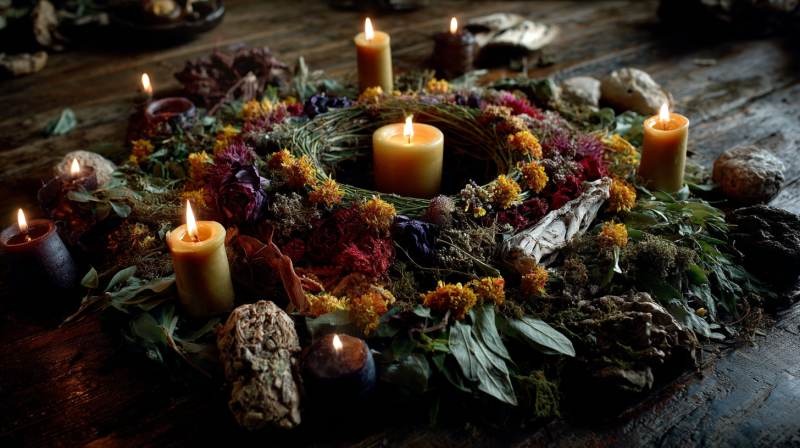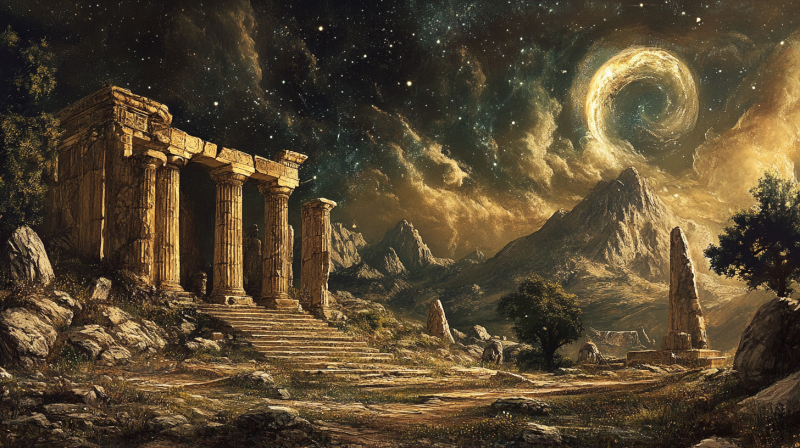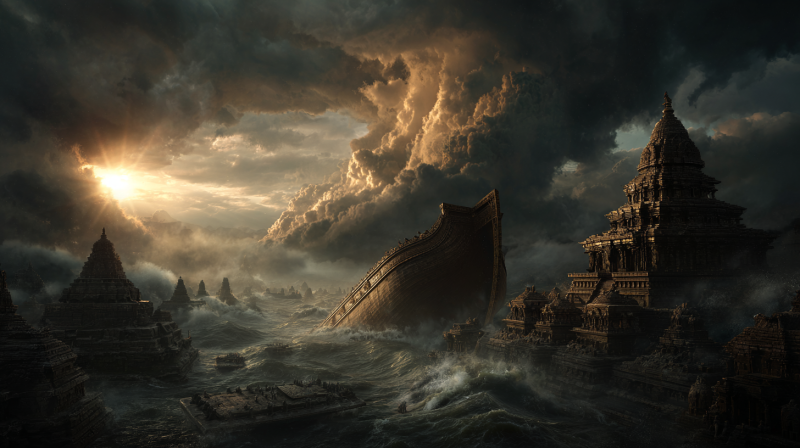In the misty landscapes of Celtic mythology lies a realm shrouded in mystery and enchantment—the Otherworld. Here, where reality blends seamlessly with the supernatural, faeries dance under moonlit skies, spirits whisper ancient secrets, and the veil between worlds grows thin. Welcome to a journey into the heart of the Celtic Otherworld, where tales of wonder and magic await.
Unveiling the Celtic Otherworld
The concept of the Otherworld, or “Tír na nÓg” in Irish mythology, holds a significant place in Celtic folklore and tradition. It is a realm parallel to our own, existing beyond the boundaries of mortal perception. In this ethereal realm, time moves differently and forces that are invisible to the human eye control nature’s laws.
The Faeries: Guardians of the Otherworld
Central to the mythology of the Celtic Otherworld are the faeries—ethereal beings of unparalleled beauty and power. In Celtic lore, these creatures come in various forms, from the mischievous sprites of Irish tales to the noble sidhe of Scottish legends. Despite their diverse appearances, faeries share a common role as custodians of the Otherworld, guarding its secrets and guiding mortal souls on their journey through life.
Tales from the Otherworld
No exploration of the Celtic Otherworld would be complete without delving into the rich tapestry of stories woven by ancient bards and storytellers. These tales offer glimpses into the magical realm beyond, where brave heroes embark on quests, encounters with faeries lead to unexpected twists of fate, and the boundaries between the mundane and the mystical blur into obscurity.
One such tale recounts the journey of Oisín, the legendary warrior-poet of Irish mythology. Drawn into the Otherworld by the beautiful Niamh of the Golden Hair, Oisín rides upon her magical steed to Tír na nÓg, where time stands still and youth is eternal. Yet, upon returning to the mortal realm, Oisín finds that centuries have passed, and all he once knew has faded into memory.
The Thin Veil: Bridging Worlds
For the Celts, the boundary between the mortal realm and the Otherworld was not fixed but rather fluid, with certain times and places serving as portals between the two. Samhain, the ancient festival marking the end of the harvest season, was believed to be a time when the veil between worlds grew thin, allowing spirits to roam freely among the living. Likewise, sacred sites such as burial mounds, standing stones, and fairy forts were thought to be gateways to the Otherworld, where one could commune with the spirits of the land.
Encounters with the Otherworld
Throughout history, there have been countless accounts of encounters with the Otherworld, ranging from fleeting glimpses of faeries in the moonlight to profound experiences of transcendence and transformation. In the modern era, these encounters continue to inspire awe and wonder, reminding us of the enduring power of Celtic mythology to captivate the human imagination.
Embracing the Magic
As we conclude our journey into the Celtic Otherworld, let us carry with us the timeless wisdom of the ancients and the magic of the faeries. In a world often dominated by the mundane and the material, the tales of Tír na nÓg remind us of the beauty and wonder that lie just beyond the veil of perception. So, let us embrace the magic of the Otherworld, and may its mysteries continue to inspire and enchant us for generations to come.
References
These sources were consulted to ensure accuracy and depth in exploring the topic of the Celtic Otherworld. Each source provides valuable insights into Celtic mythology, folklore, and the concept of the Otherworld, contributing to a comprehensive understanding of this enchanting realm.
- MacCulloch, J. A. (2005). “The Religion of the Ancient Celts“. Dover Publications.
- Briggs, K. M. (1976). “An Encyclopedia of Fairies: Hobgoblins, Brownies, Bogies, and Other Supernatural Creatures“. Pantheon Books.
- Cross, T. P., & Slover, C. H. (1991). “Ancient Irish Tales“. Henry Holt & Co.
- Campbell, J. F. (2005). “Popular Tales of the West Highlands: Orally Collected“. Echo Library.
- “Celtic Mythology” – Encyclopedia Britannica.
- “The Otherworld in Irish Mythology” – Celtic-WeddingRings.com.
- “Samhain: The Original Halloween” – History.com.
- Koch, J. T. (2006). “The Celtic Otherworld”. The Heroic Age, 9.
- Smyth, D. (2006). “A Guide to Early Irish Law”. Dublin Institute for Advanced Studies.





